Find Help
More Items From Ergsy search
-
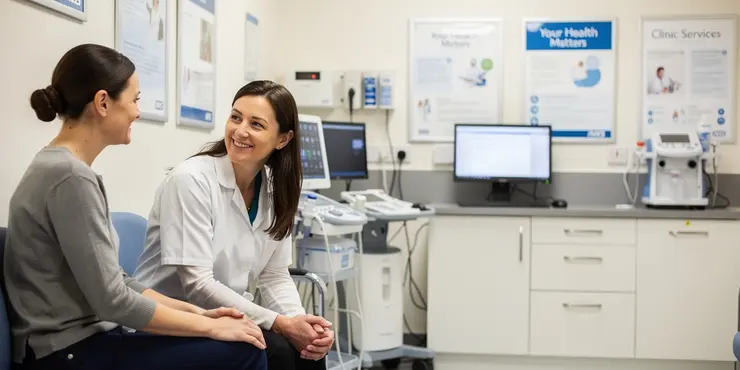
Endoscopy Procedures | Colonoscopy
Relevance: 100%
-
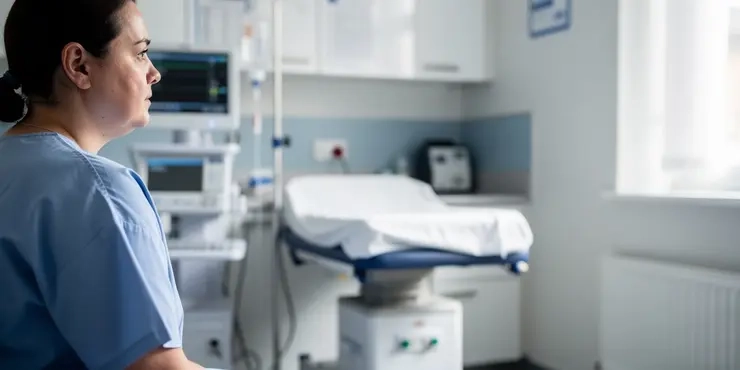
What happens during a colonoscopy?
Relevance: 95%
-
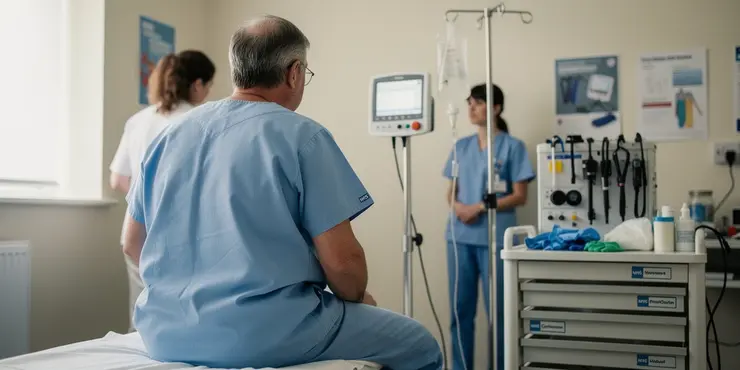
What to expect at your colonoscopy
Relevance: 94%
-
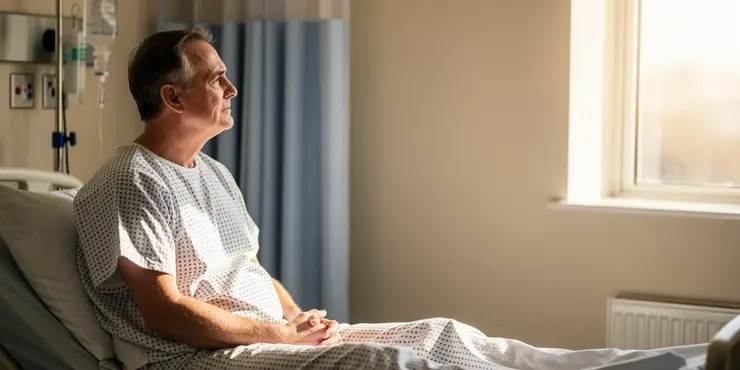
Having a colonoscopy in hospital - Patient Guide
Relevance: 92%
-
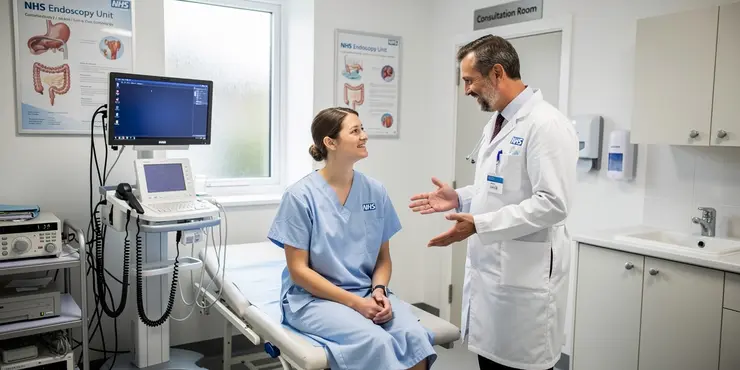
What happens during a colonoscopy? | NHS
Relevance: 91%
-
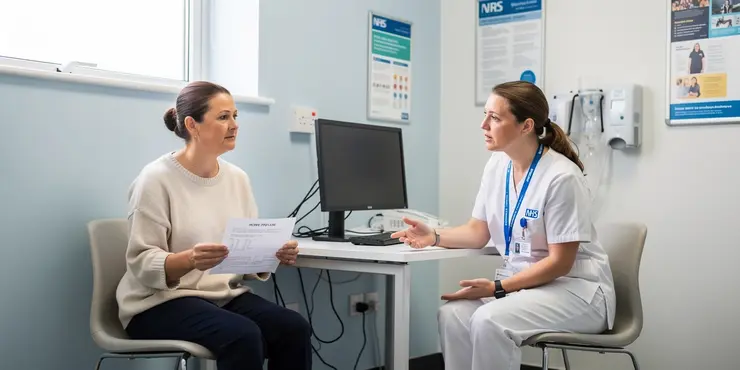
Is a colonoscopy necessary after a positive home test?
Relevance: 89%
-
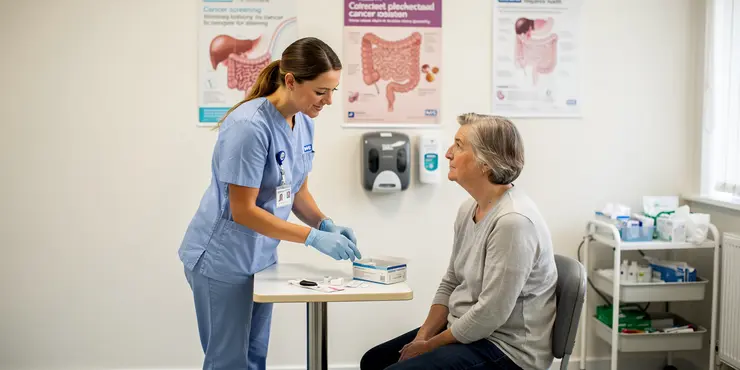
Can home colorectal cancer tests replace a colonoscopy?
Relevance: 85%
-
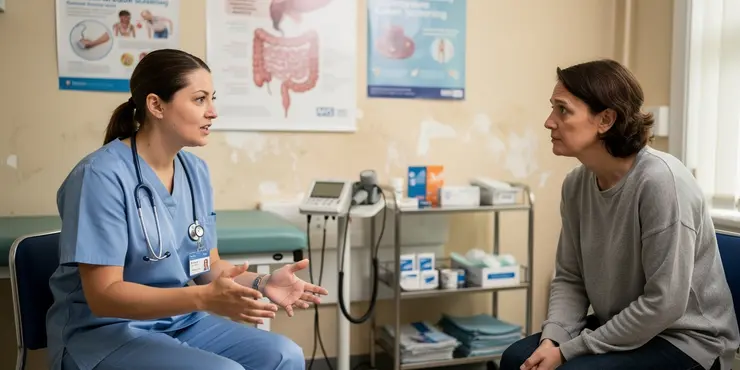
What is a colonoscopy and how is it used in bowel cancer?
Relevance: 42%
-
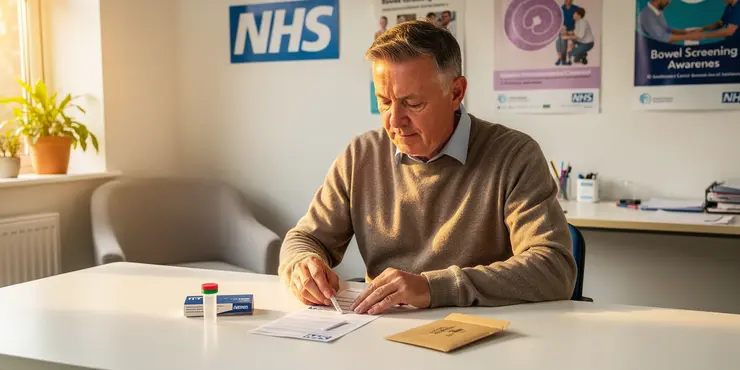
What are the recommendations for colorectal cancer screening?
Relevance: 41%
-
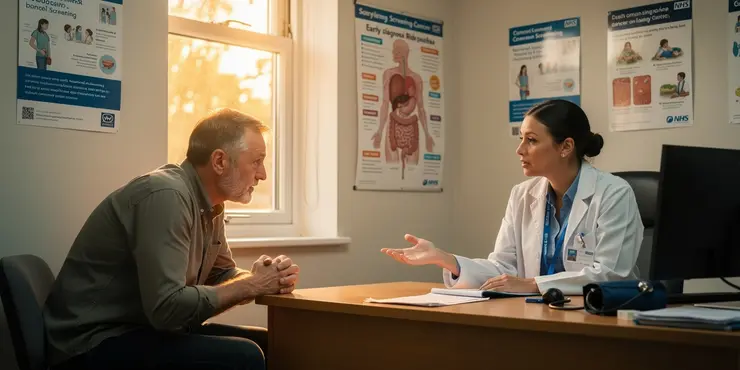
How is bowel cancer diagnosed?
Relevance: 38%
-
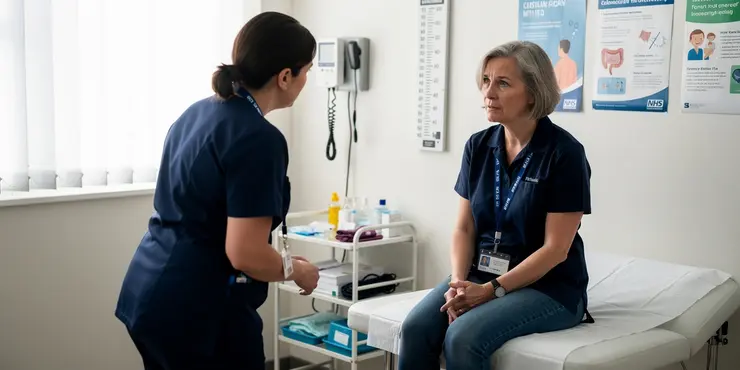
How can I test myself for colorectal cancer?
Relevance: 37%
-
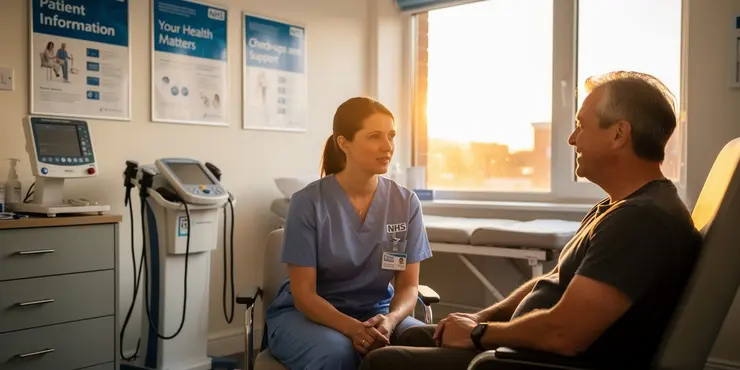
What is an endoscopy?
Relevance: 32%
-
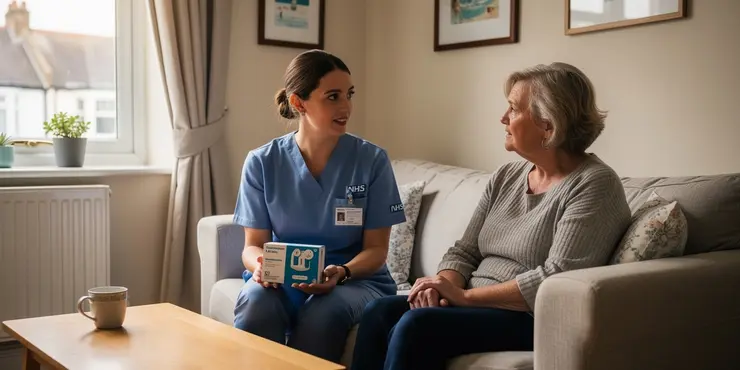
What are the advantages of an at-home colorectal cancer test?
Relevance: 32%
-
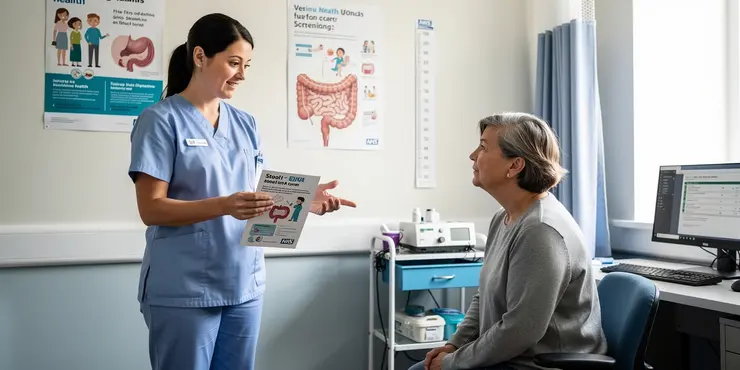
What is a stool DNA test?
Relevance: 29%
-
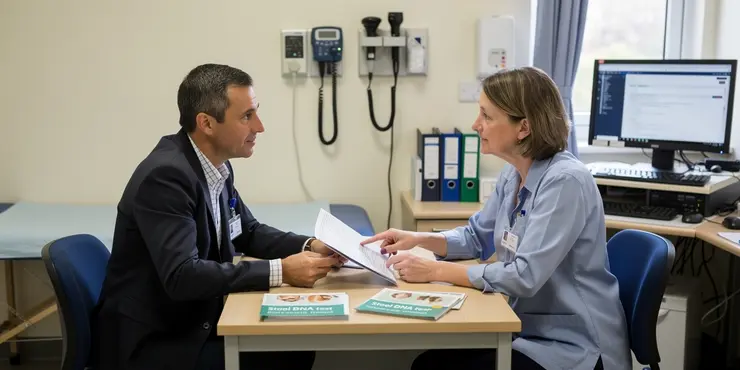
Do I need a prescription to get a stool DNA test?
Relevance: 29%
-
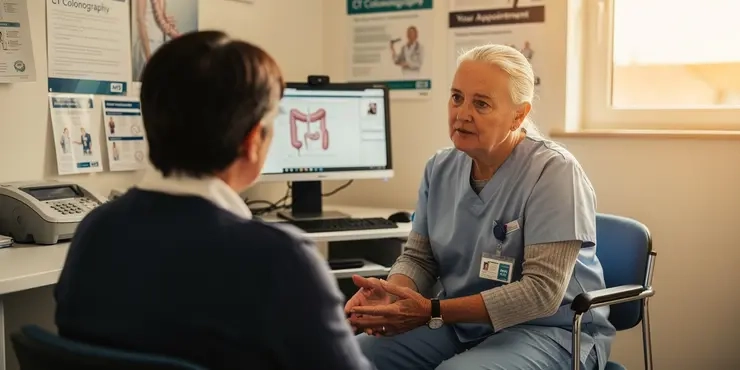
Live Expert CT Colonography YouTube
Relevance: 29%
-
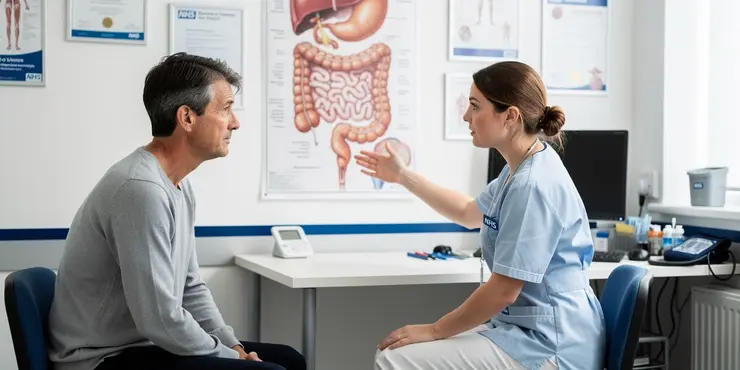
How is Crohn's disease diagnosed?
Relevance: 28%
-
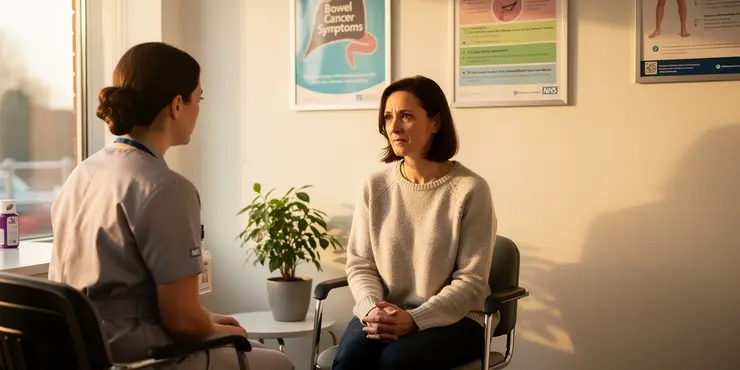
What is Bowel Cancer?
Relevance: 27%
-
Are there risks associated with home colorectal cancer tests?
Relevance: 27%
-
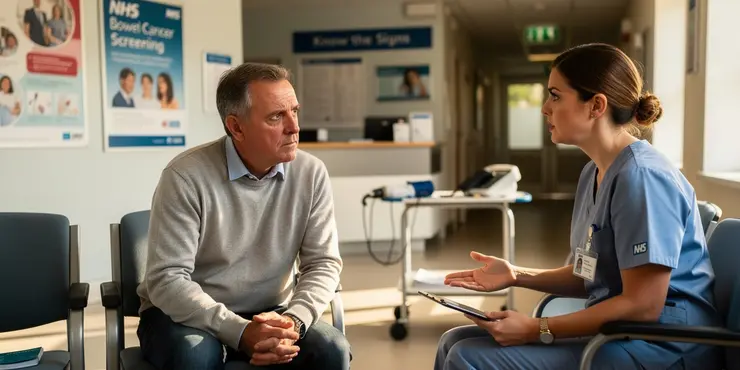
What is colorectal cancer?
Relevance: 26%
-
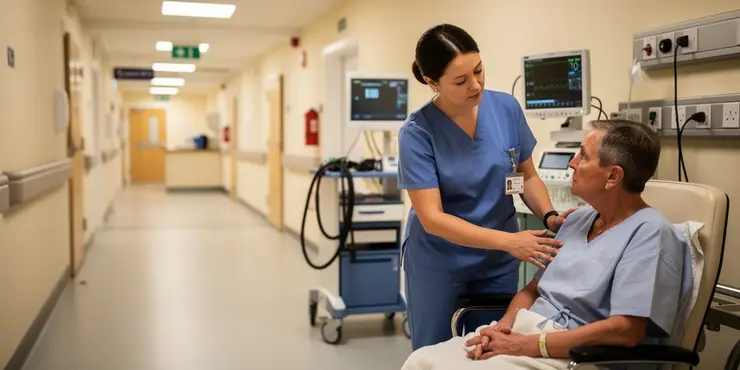
Endoscopy Unit
Relevance: 23%
-
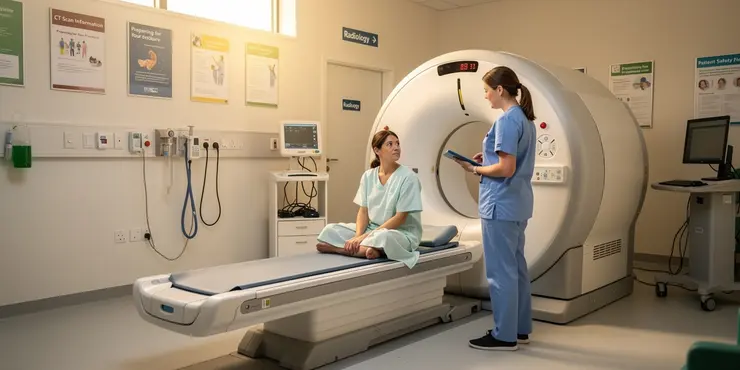
What is a CT colonography?
Relevance: 22%
-
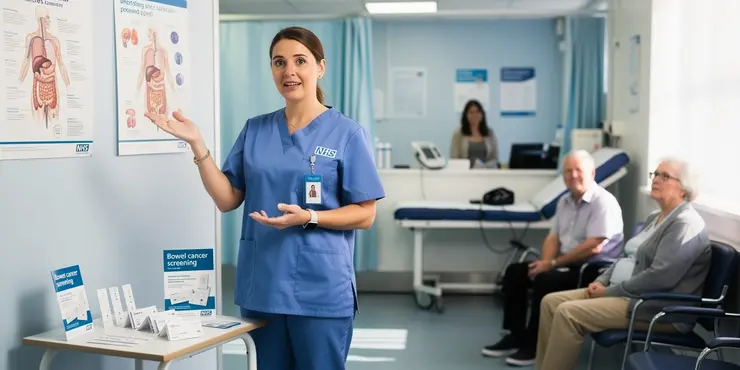
What are the main methods for testing yourself for colorectal cancer?
Relevance: 22%
-
Bleeding from the bottom rectal bleeding
Relevance: 22%
-
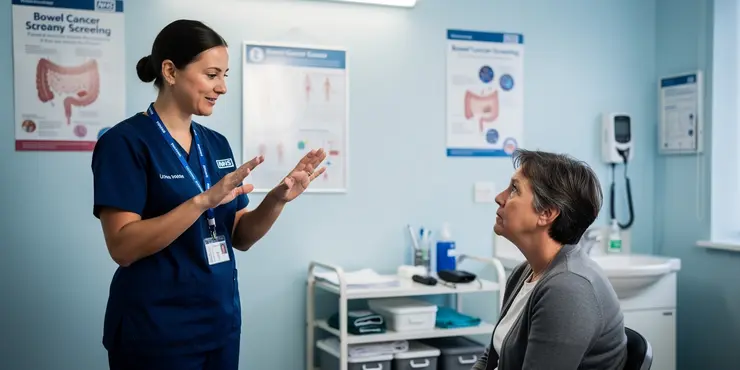
Learn about bowel cancer (British Sign Language version)
Relevance: 21%
-
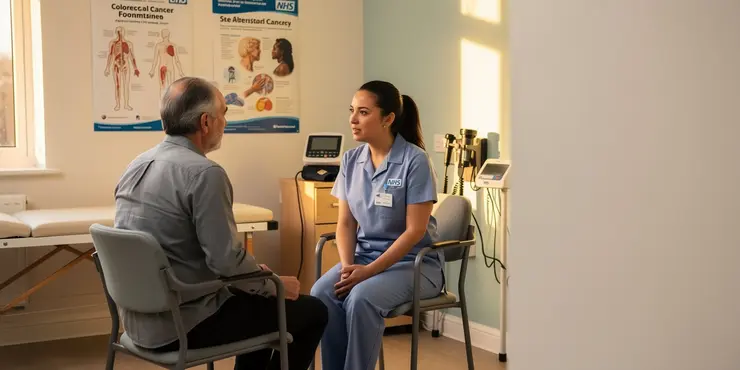
What alternative methods exist to screen for colorectal cancer?
Relevance: 21%
-
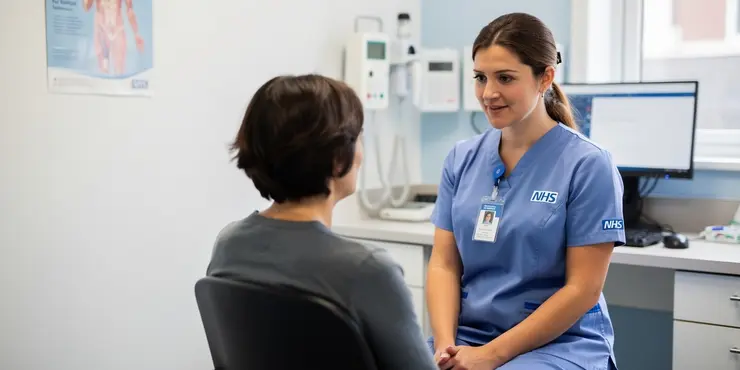
MTW Endoscopy service and training hub
Relevance: 20%
-
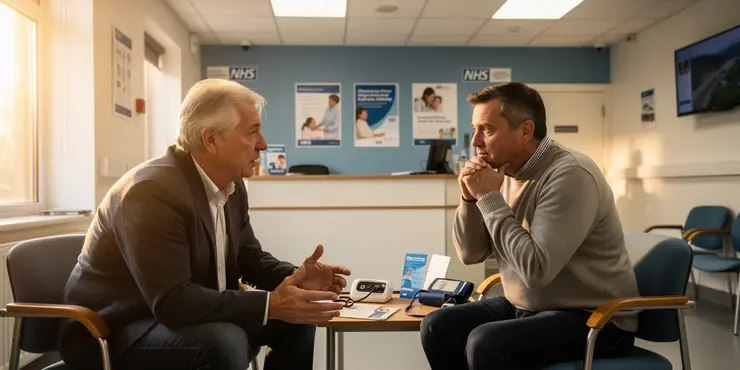
Bowel cancer screening: Alan Titchmarsh and Tommy Walsh | NHS
Relevance: 20%
-
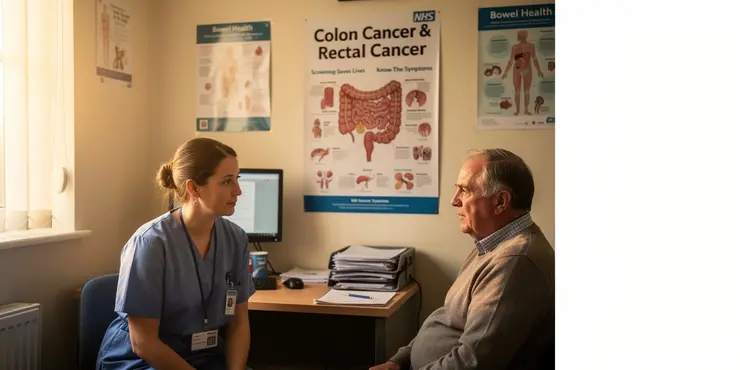
What is the difference between colon cancer and rectal cancer?
Relevance: 19%
-
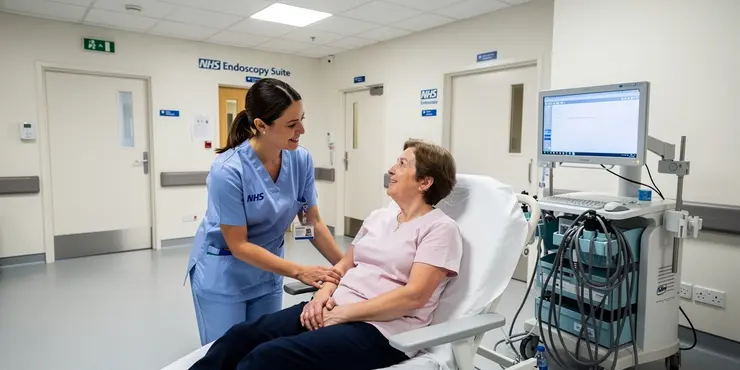
A guide to the new Endoscopy Suite at Chesterfield Royal Hospital NHS Foundation Trust
Relevance: 18%
-
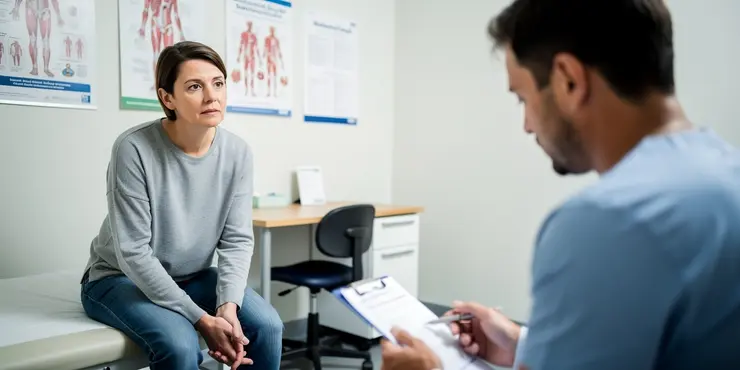
Bleeding from the bottom rectal bleeding
Relevance: 18%
-
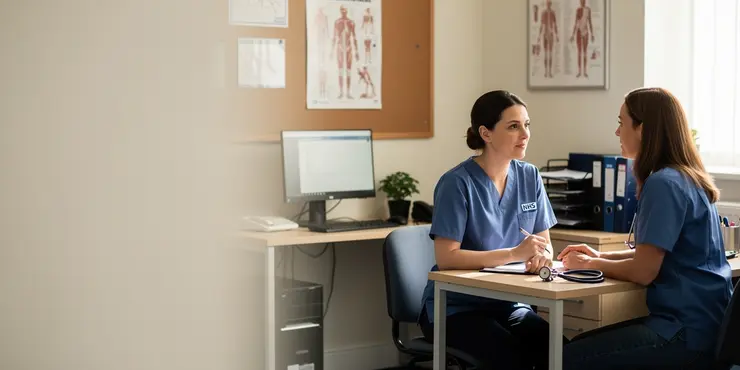
About irritable bowel syndrome (IBS)
Relevance: 18%
-
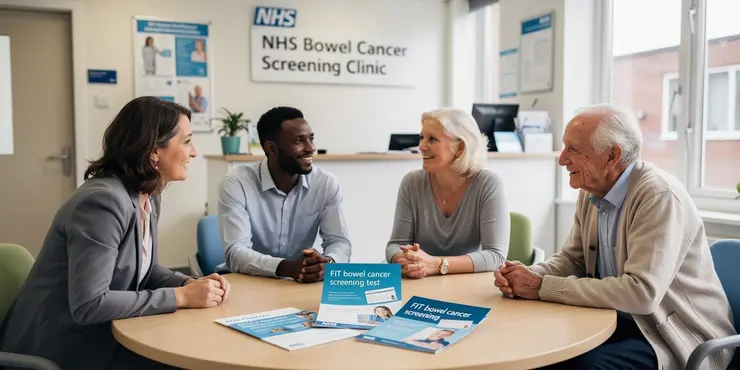
How to do the FIT bowel cancer screening test | Cancer Research UK
Relevance: 18%
-
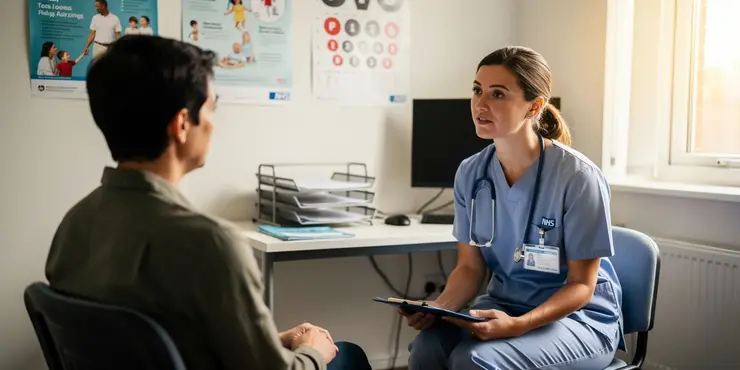
How does family history affect the risk of bowel cancer?
Relevance: 17%
-
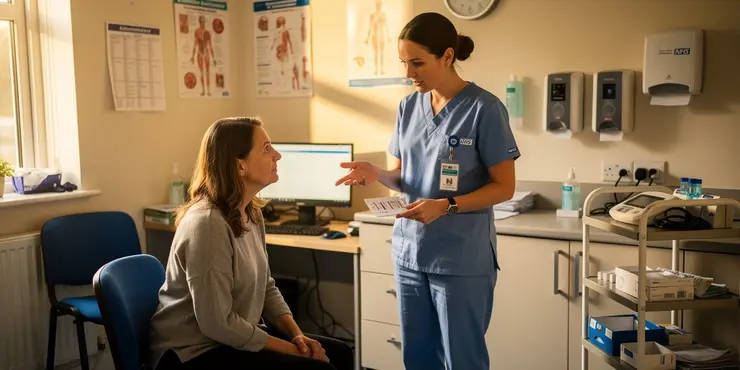
What is a fecal occult blood test?
Relevance: 17%
-
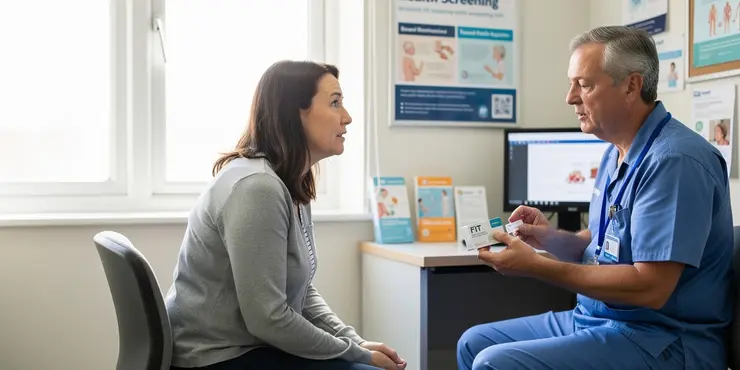
Can I order a FIT test online?
Relevance: 17%
-
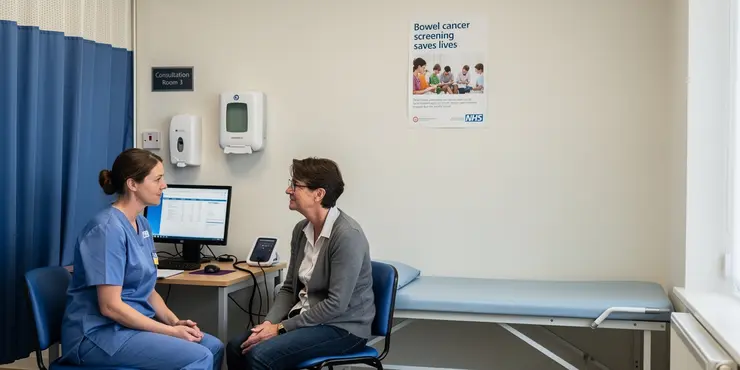
How does increased screening impact bowel cancer statistics?
Relevance: 17%
-
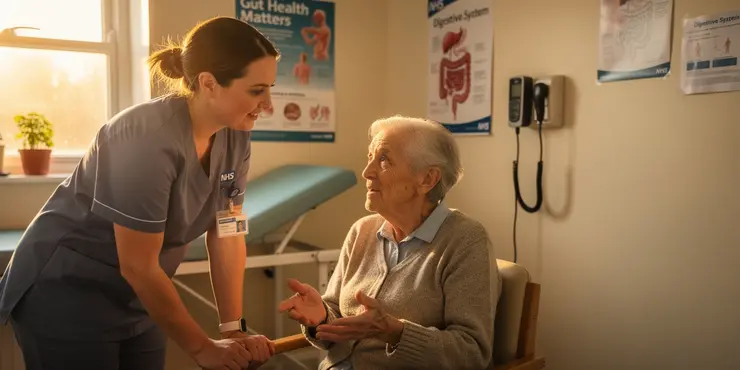
Are there specific gut-related diseases that become more common with age?
Relevance: 17%
-
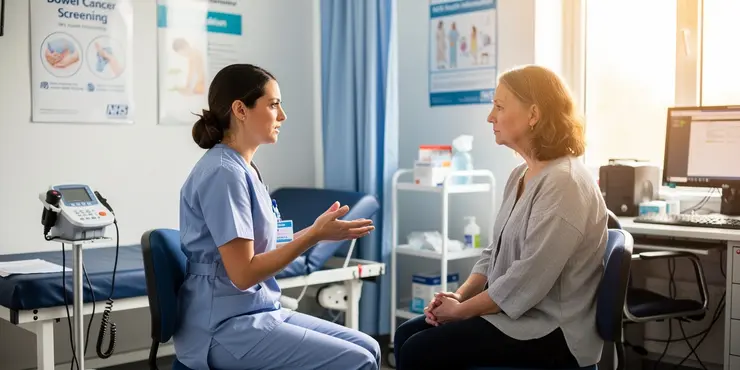
What kinds of cancer screening are available?
Relevance: 16%
-
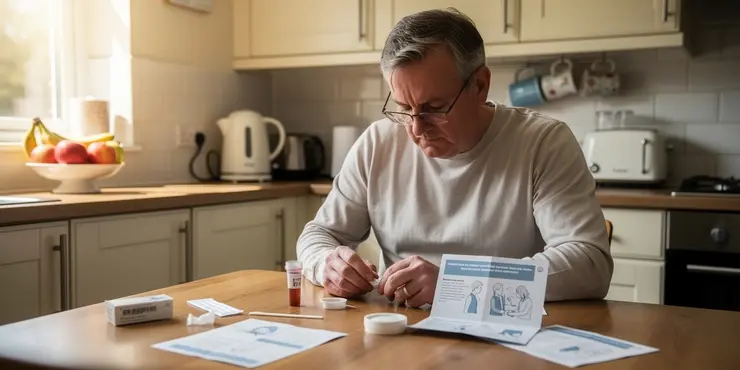
How to use the bowel cancer screening FIT kit | NHS
Relevance: 15%
What Happens During a Colonoscopy?
Preparation Before the Procedure
Before undergoing a colonoscopy, patients in the UK need to follow specific preparation instructions to ensure the bowel is clear for the procedure. A few days prior, you will be advised to adhere to a low-fibre diet. The day before the procedure, you'll need to take a strong laxative. It’s also crucial to keep hydrated with clear fluids. Your healthcare provider will give you precise guidelines.The Day of the Procedure
On the day of your colonoscopy, you’ll be asked to arrive at the hospital or clinic well in advance. After checking in, you'll be given a hospital gown to wear. Many patients are also offered a sedative or pain reliever to ensure comfort during the procedure. Standard monitoring equipment will be used to keep track of your vital signs throughout the process.The Procedure Itself
During a colonoscopy, the patient is asked to lie on their side on an examination table. The doctor then inserts a long, flexible tube called a colonoscope into the rectum. The colonoscope has a tiny video camera at its tip, which allows the doctor to view the inside of the entire colon. The tube also pumps air to inflate the colon slightly, which improves the visibility of the colon walls.Identifying and Addressing Issues
As the doctor navigates through the colon, they will look for abnormal tissues, polyps, or signs of colorectal cancer. If polyps are found, they can often be removed using tiny instruments passed through the colonoscope. Tissue samples (biopsies) can also be taken to be analysed later. The whole process generally takes about 30 to 60 minutes.Post-Procedure Care
After the colonoscopy, patients are moved to a recovery area where nurses will monitor them until the effects of the sedative wear off. You may experience some bloating or cramps due to the air introduced into the colon. Discharge instructions will be provided, advising against driving or operating machinery for the rest of the day. Most people can resume normal activities the following day.Receiving Results
Initial results from the colonoscopy might be discussed immediately after the procedure. However, if biopsies were taken, the detailed results could take a few days or even a couple of weeks. Based on the findings, your healthcare provider will discuss any follow-up care or additional procedures necessary. It is important to remember that while a colonoscopy can be uncomfortable, it is a crucial tool for identifying and preventing serious illnesses. Always follow your healthcare provider's instructions for the best outcomes.What Happens During a Colonoscopy?
Getting Ready Before the Test
Before you have a colonoscopy in the UK, you need to prepare your body. This helps the doctor see clearly inside. A few days before, eat only food with low fibre. The day before, you will take a strong medicine to make you go to the toilet a lot. Drink clear liquids to stay hydrated. Your doctor will tell you exactly what to do.The Day of the Test
On the day of your colonoscopy, come to the hospital or clinic early. You will change into a special gown. You might get medicine to help you feel relaxed and not hurt. The doctor will watch your important body signs during the test.What Happens in the Test
During the test, you will lie on your side. The doctor will put a long, bendy tube called a colonoscope inside your bottom. The tube has a tiny camera to see inside your tummy. The tube also puffs air to open up your tummy, so the doctor can see better.Finding and Checking Problems
The doctor looks for anything unusual inside, like tiny lumps or signs of cancer. If they find something, they can often take it out with special tools in the tube. They might also take a small piece to check it later. The test usually takes 30 to 60 minutes.After the Test Care
After the colonoscopy, you will rest in a recovery area. Nurses will watch over you until you feel better. You might feel full of air or have some cramps. Don't drive or use machines until the next day. Most people feel normal again by then.Getting the Test Results
The doctor might tell you some results right after the test. But if they took samples, you might need to wait a few days or weeks to know more. Your doctor will talk to you about what they find and what to do next. Remember, a colonoscopy can be a bit uncomfortable, but it helps catch serious problems early. Always do what your doctor says to stay healthy.Frequently Asked Questions
What is a colonoscopy?
A colonoscopy is a medical procedure where a long, flexible tube with a camera at the end (called a colonoscope) is used to examine the inside of your large intestine (colon) and rectum.
Why is a colonoscopy performed?
A colonoscopy is performed to investigate symptoms such as abdominal pain, rectal bleeding, or changes in bowel habits. It is also used to screen for colorectal cancer and other conditions.
How do I prepare for a colonoscopy?
Preparation typically involves following a special diet and taking laxatives to empty your colon. Your doctor will provide specific instructions.
Can I eat or drink before the procedure?
You will need to follow a clear liquid diet the day before the procedure and avoid eating or drinking anything a few hours before the colonoscopy.
Will I be sedated during a colonoscopy?
Yes, you are usually given a sedative to help you relax and make you comfortable during the procedure.
How long does the procedure take?
A colonoscopy usually takes about 30 to 60 minutes, but you should plan to be at the clinic for 2 to 3 hours to allow for preparation and recovery.
What happens during the procedure?
During the procedure, you will lie on your side. The doctor will insert the colonoscope into your rectum and slowly guide it through your colon to examine the lining. Air may be pumped into your colon to expand it for better view.
Will it hurt?
You might feel some pressure or cramping, but the sedatives help reduce discomfort. Most people do not remember the procedure afterward.
What should I expect after the procedure?
You may feel bloated or pass gas as air leaves your colon. You will need to rest until the sedatives wear off, and someone should drive you home.
Are there any risks associated with a colonoscopy?
While generally safe, there are some risks, including bleeding, perforation of the colon, and reactions to the sedatives. These complications are rare.
Will I get the results immediately?
Your doctor may discuss initial findings right after the procedure, but if biopsies were taken, you may need to wait several days for the results.
Can a colonoscopy detect colon cancer?
Yes, a colonoscopy can detect colon cancer as well as polyps, which can be precursors to cancer.
How often should I have a colonoscopy?
Screening recommendations vary, but typically, people aged 50 and older should have a colonoscopy every 10 years, or more frequently if there are risk factors.
What if polyps are found during the colonoscopy?
If polyps are found, they can often be removed during the colonoscopy. The polyps will then be sent to a lab for analysis.
Do I need to follow any special instructions after the procedure?
You should avoid driving, operating heavy machinery, and making important decisions for the rest of the day due to the sedation. Follow any additional instructions provided by your doctor.
What is a colonoscopy?
A colonoscopy is when a doctor looks inside your bottom and tummy with a tiny camera. You might need this to check if your tummy is healthy.
Tools that can help:
- Ask a family member or friend to explain things.
- Use a picture book about doctor visits.
A colonoscopy is a test by a doctor. They use a long bendy tube with a tiny camera on the end. This is called a colonoscope. It helps them look inside your big intestine (colon) and bottom (rectum).
Why do doctors do a colonoscopy?
A colonoscopy is a test where the doctor looks inside your bottom. It helps the doctor see if there are any problems with your belly.
Here are some reasons why doctors might do a colonoscopy:
- To check for bleeding inside.
- To find out why you have belly pain.
- To see if there are any lumps or bumps.
If you have trouble reading, you can ask someone you trust to help you read and understand this information. You can also use tools that read the text out loud. They can be very helpful!
A colonoscopy is a type of check-up doctors use to look inside your tummy. They do this to find out why someone might have a sore tummy, bleeding from their bottom, or if they need to use the toilet differently than before. It also helps doctors look for signs of bowel cancer and other problems.
Tools and techniques to help: - Use a ruler or your finger to follow the words while reading. - Take breaks if the reading feels too hard or long. - Ask someone to read it with you if you need help.How do I get ready for a colonoscopy?
Getting ready for a colonoscopy means cleaning out your colon. Here is how you can do it:
- Talk to your doctor: Ask your doctor what you need to do. They will give you instructions.
- Change your diet: A few days before the test, start eating light foods. Avoid heavy and solid foods.
- Drink a special drink: Your doctor will give you a drink that helps clean out your colon. Follow the instructions carefully.
- Stay near a bathroom: The drink will make you go to the bathroom a lot to clean out your colon.
- Ask for help: Tell a friend or family member that you need help or support.
Tip: Use a calendar or checklist to keep track of what you need to do each day. This makes it easier to remember everything.
To get ready, you might need to eat special foods and take medicine that helps you go to the toilet. Your doctor will tell you exactly what to do.
Can I have food or drinks before the procedure?
Ask the doctor or nurse if you can eat or drink before you see them. You might need to stop eating or drinking for a few hours.
If you need help, you can:
- Use a clock or timer to know when to stop eating.
- Ask someone to remind you not to eat or drink.
The day before your procedure, you need to drink only clear liquids. Do not eat any food. Stop drinking anything a few hours before your colonoscopy.
Will I be given medicine to make me sleepy during a colonoscopy?
When you have a colonoscopy, the doctor may give you medicine that helps you relax and feel sleepy. This is so you won't feel any discomfort during the procedure. It's like taking a nap while the doctor checks your tummy.
If you have questions or feel worried, talk to the doctor or nurse. They can explain everything and help you feel better.
Using picture books or watching videos for kids can also help understand more about what happens during a colonoscopy.
Yes, you usually get some medicine to help you feel calm and comfy during the procedure.
How long does it take?
A colonoscopy is a test that takes about 30 to 60 minutes. But you should plan to be at the clinic for 2 to 3 hours. This is so you have time to get ready and feel better after the test.
What happens during the procedure?
The doctor will do something to help you feel better. It might be in a hospital or a clinic. They will make sure you are safe and comfortable. You might be awake, or you could be asleep if they give you medicine.
Here’s what might happen:
- The doctor and nurses will talk to you and answer any questions.
- They might put a special cream on your skin or give you medicine to help you relax.
- They will do what they need to do to help you feel better.
- When it’s all done, they will take care of you and make sure you are okay.
If reading is hard, you can ask someone to read this to you. You can also draw pictures to help you understand or use an app that reads text out loud.
When you have this test, you will lie on your side. The doctor will put a thin tube, called a colonoscope, into your bottom. The doctor will slowly move the tube through your large intestine to look inside. The doctor might blow a little air inside to see better.
Will it hurt?
Are you worried it might hurt? It’s okay to feel that way. Sometimes things might feel a bit uncomfortable. But don't worry, it might not be as bad as you think. You can try taking deep breaths to feel better. If you feel nervous, it can help to talk to someone you trust. They can help you feel better and more calm.
You might feel a little squeezing or a cramp, but the medicine helps it not hurt so much. Most people do not remember what happened after it is done.
What will happen after the procedure?
After the procedure, here are some things you can expect:
- You might feel tired. Rest if you need to.
- If you feel any pain, tell someone. They can help you feel better.
- You might need to take medicine. Follow what the doctor says.
- You will have a check-up later to see how you are healing.
If you are unsure of anything, ask for help. You can talk to a nurse or doctor. You can also ask a friend or family member for support.
You might feel like your tummy is full or you might pass gas after the air leaves your belly. You need to take a nap until the sleepy medicine goes away, and someone else should drive you home.
Is a colonoscopy safe?
A colonoscopy is usually very safe. But, like any medical test, there are some risks. Here are a few things to know:
- Sometimes, the doctor could scratch or tear the inside of the tummy. This is rare.
- You might feel a bit sleepy after the medicine used for the test.
- You could have a small amount of bleeding.
- You may feel bloated or gassy after the test.
It’s always a good idea to talk to your doctor about how to be safe.
Here are some things that might help:
- Ask a friend or family member to go with you.
- Tell the doctor if you feel scared.
- Take deep breaths to stay calm.
This is usually safe, but there are some risks. These include bleeding, a small tear in the colon, and reactions to the medicines that help you relax. These problems do not happen often.
Will I know the results right away?
Your doctor might tell you what they found right after the test. If they took a small sample, called a biopsy, you might have to wait a few days to know the results.
Can a Colonoscopy Find Colon Cancer?
A colonoscopy is a test. It looks inside the colon (which is also called the large intestine). This test can help doctors find signs of colon cancer.
If doctors find something that looks like cancer, they can check it more carefully. This helps to catch cancer early, which can make treatments work better.
If you want to know more, you can ask your doctor. They can explain how the test works and answer questions.
You can also use tools like pictures and videos to help understand better.
Yes, a colonoscopy can find colon cancer. It can also find small growths called polyps. These polyps might turn into cancer later.
How often do I need a colonoscopy?
A colonoscopy is a test to check the inside of your bottom and belly. Doctors use it to make sure everything is okay.
People usually need this test every 10 years, but you might need it more often if your doctor says so. They will tell you what is best for you.
If reading is hard, you can ask someone to read this to you. You can also use a tool that reads out loud or one that helps make the words bigger.
Doctors say most people should start getting a colon check-up when they turn 50. You usually need this check every 10 years. But if you have health worries, you might need it more often.
What happens if doctors find polyps during the test?
If doctors find polyps during the test, they will take them out. Polyps are little bumps inside your bowel. Taking them out stops them from growing bigger. This helps keep you healthy.
If you have questions, you can ask the doctor to explain. It is okay to ask for help or use tools like pictures or videos to understand better.
The doctor can take out small lumps, called polyps, during the check-up of your tummy. These lumps are then sent to a special place to learn more about them.
What should I do after the procedure?
After your procedure, you might need to do some things to help you feel better. Here is how you can help yourself:
- Rest and take it easy. Don't do too much.
- Listen to your doctor. They will tell you what to do.
- If you have medicine to take, remember to take it.
- If something hurts or you feel sick, tell your doctor or nurse.
If you need help, you can ask someone you trust to be with you or remind you what to do.
Don't drive a car or use big machines today because you might feel sleepy. Also, don't make big decisions today. Listen to any other advice your doctor gives you.
Useful Links
This website offers general information and is not a substitute for professional advice.
Always seek guidance from qualified professionals.
If you have any medical concerns or need urgent help, contact a healthcare professional or emergency services immediately.
Some of this content was generated with AI assistance. We’ve done our best to keep it accurate, helpful, and human-friendly.
- Ergsy carfully checks the information in the videos we provide here.
- Videos shown by Youtube after a video has completed, have NOT been reviewed by ERGSY.
- To view, click the arrow in centre of video.
- Most of the videos you find here will have subtitles and/or closed captions available.
- You may need to turn these on, and choose your preferred language.
- Go to the video you'd like to watch.
- If closed captions (CC) are available, settings will be visible on the bottom right of the video player.
- To turn on Captions, click settings .
- To turn off Captions, click settings again.
More Items From Ergsy search
-

Endoscopy Procedures | Colonoscopy
Relevance: 100%
-

What happens during a colonoscopy?
Relevance: 95%
-

What to expect at your colonoscopy
Relevance: 94%
-

Having a colonoscopy in hospital - Patient Guide
Relevance: 92%
-

What happens during a colonoscopy? | NHS
Relevance: 91%
-

Is a colonoscopy necessary after a positive home test?
Relevance: 89%
-

Can home colorectal cancer tests replace a colonoscopy?
Relevance: 85%
-

What is a colonoscopy and how is it used in bowel cancer?
Relevance: 42%
-

What are the recommendations for colorectal cancer screening?
Relevance: 41%
-

How is bowel cancer diagnosed?
Relevance: 38%
-

How can I test myself for colorectal cancer?
Relevance: 37%
-

What is an endoscopy?
Relevance: 32%
-

What are the advantages of an at-home colorectal cancer test?
Relevance: 32%
-

What is a stool DNA test?
Relevance: 29%
-

Do I need a prescription to get a stool DNA test?
Relevance: 29%
-

Live Expert CT Colonography YouTube
Relevance: 29%
-

How is Crohn's disease diagnosed?
Relevance: 28%
-

What is Bowel Cancer?
Relevance: 27%
-
Are there risks associated with home colorectal cancer tests?
Relevance: 27%
-

What is colorectal cancer?
Relevance: 26%
-

Endoscopy Unit
Relevance: 23%
-

What is a CT colonography?
Relevance: 22%
-

What are the main methods for testing yourself for colorectal cancer?
Relevance: 22%
-
Bleeding from the bottom rectal bleeding
Relevance: 22%
-

Learn about bowel cancer (British Sign Language version)
Relevance: 21%
-

What alternative methods exist to screen for colorectal cancer?
Relevance: 21%
-

MTW Endoscopy service and training hub
Relevance: 20%
-

Bowel cancer screening: Alan Titchmarsh and Tommy Walsh | NHS
Relevance: 20%
-

What is the difference between colon cancer and rectal cancer?
Relevance: 19%
-

A guide to the new Endoscopy Suite at Chesterfield Royal Hospital NHS Foundation Trust
Relevance: 18%
-

Bleeding from the bottom rectal bleeding
Relevance: 18%
-

About irritable bowel syndrome (IBS)
Relevance: 18%
-

How to do the FIT bowel cancer screening test | Cancer Research UK
Relevance: 18%
-

How does family history affect the risk of bowel cancer?
Relevance: 17%
-

What is a fecal occult blood test?
Relevance: 17%
-

Can I order a FIT test online?
Relevance: 17%
-

How does increased screening impact bowel cancer statistics?
Relevance: 17%
-

Are there specific gut-related diseases that become more common with age?
Relevance: 17%
-

What kinds of cancer screening are available?
Relevance: 16%
-

How to use the bowel cancer screening FIT kit | NHS
Relevance: 15%


